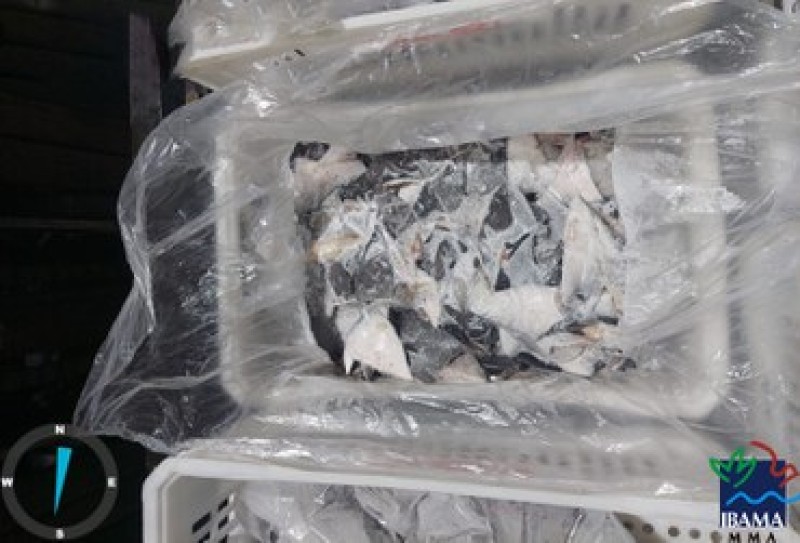The majority of the seizure occurred at a single exporting company located in the Brazilian state of Santa Catarina. Within this company, the Ibama team discovered a staggering 27.6 tonnes of shark fins. An additional 1.1 tonnes from another company were intercepted at São Paulo's airport. These fins, belonging to the Blue shark and Shortfin Mako shark species, were intended for illicit export to Asia, where they are highly valued as delicacies.
Ibama's statement highlighted that this operation is part of a broader institutional action to combat illegal, unreported, and unregulated fishing (IUU). It aligns with Brazil's National Annual Environmental Protection Plan and complies with international agreements.
Targeted shark fishing is strictly prohibited in Brazil, and the fishing vessels involved in this seizure held licenses for capturing other fish species. However, it was discovered that these vessels were operating with catch rates that far exceeded the permitted limit, demonstrating a blatant disregard for regulations.
Furthermore, the vessels failed to implement mandatory measures to prevent the incidental capture and death of seabirds. This resulted in the unnecessary loss of thousands of seabirds, including some endangered species, exacerbating the ecological impact caused by the illegal operation.
Such indiscriminate and irregular fishing practices have led to a drastic decline in global shark populations, pushing many species to the brink of extinction. The recent inclusion of the Shortfin Mako shark on the national list of threatened species further emphasizes the urgency of addressing this issue.
Ibama has vowed to continue its relentless fight against this destructive trade.


